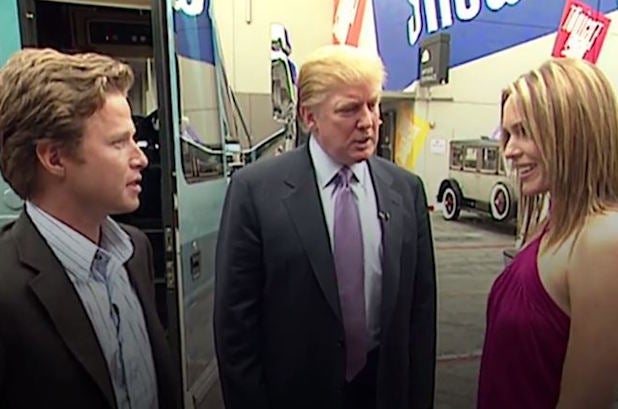The man who boasted that he could murder a person in broad daylight and still win the presidency has discovered that a politician can still go “too far”. Several prominent Republicans have withdrawn their support for Donald Trump after The Washington Post revealed an audio recording of him making vulgar boasts about sexually assaulting women.
 It is interesting that these comments were made in 2005 – long before the Donald even considered going on the campaign trail. This suggests Trump has been exercising more discipline than many gave him credit for. It is also revealing that commentators have focused on the offensive nature of the remarks or their impact on the female vote. We should worry less about personal hurt and key demographics and focus more on the objective evil of misogyny.
It is interesting that these comments were made in 2005 – long before the Donald even considered going on the campaign trail. This suggests Trump has been exercising more discipline than many gave him credit for. It is also revealing that commentators have focused on the offensive nature of the remarks or their impact on the female vote. We should worry less about personal hurt and key demographics and focus more on the objective evil of misogyny.
We may wonder how such a man ever became his party’s presidential nominee. Politicians, historians, philosophers, and pundits have all struggled to account for the rise of Donald Trump; but the simplest explanation is that elections are no longer about policies or agendas. The era of free and open debate over political ideas is dead and Donald Trump ruthlessly exploited this.
Today, elections are about advertising. Generally, the politician who gets the most coverage gets the most votes. So Trump shrewdly generated hours of television coverage with outrageous statements and a devilish message. When identities and interest groups matter more than the public good it is better to concentrate on producing visceral reactions than detailed manifestos.
 Indeed, the satirists who mocked Donald Trump relentlessly were essential to his ascent. They provided his campaign with the gift of free air-time. Viewers were not deterred by Trump’s lack of sophistication, his cruel humour, his manifest racism or even his patent disinterest in government. To be sure, the public laughed at his buffoonery; but they also loved his gospel. For Donald preached selfish capitalism and the power of self-belief.
Indeed, the satirists who mocked Donald Trump relentlessly were essential to his ascent. They provided his campaign with the gift of free air-time. Viewers were not deterred by Trump’s lack of sophistication, his cruel humour, his manifest racism or even his patent disinterest in government. To be sure, the public laughed at his buffoonery; but they also loved his gospel. For Donald preached selfish capitalism and the power of self-belief.
Leftists despised Trump’s antipathy to postmodern tolerance; but they failed to recognise that Trump shared their deep belief in moral relativism. Charity and equality were simply not to his tastes. His message was profoundly anti-Christian; in his rhetoric Trump personified rage and vanity. He saw no need for repentance; the meek and the humble were “losers” with no place in his kingdom. In his speeches, “win” and “winning” were repeated like sacred mantras. The Sermon on the Mount must nauseate him.
Yet his message dovetailed perfectly with that of the advertising gurus. You’re beautiful, no matter what they say; every day, in every way, you get better and better; and Donald would make you great again because you’re worth it. His narcissism did not seem demonic because it is part of the cultural air we breathe.
After all, how could it be wrong to believe in a man who merely believes in himself?
